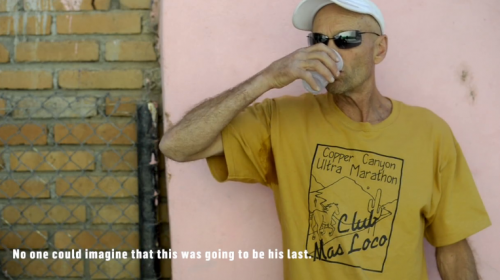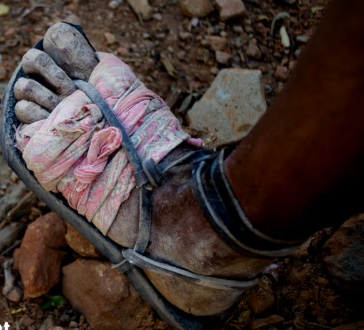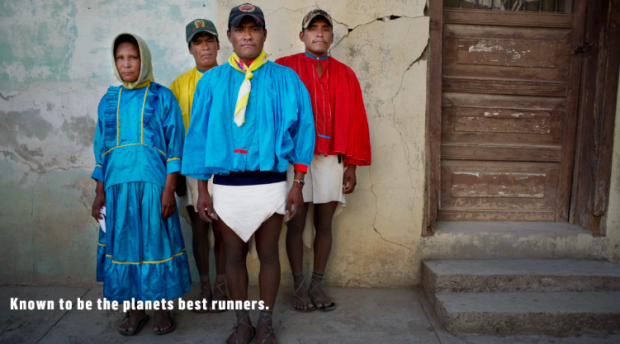
Hey Everyone, Dr. Mark is relaxing at the beach with his family during this holiday weekend, so I am filling in for him this time around.– Bill Katovsky.
Last week, the New York Times ran a marvelous, heart-stirring, and emotional wallop of a feature story about an individual whose life, directly and indirectly, touched us all. In the article titled, “Caballo Blanco’s Last Run: The Micah True Story,” author Barry Bearek eloquently limned the one-of-a-kind existence that the late Caballo pursued with the purity of Thoreau, intensity of an accomplished. endurance athlete, and selflessness of a Good Samaritan.
Are the Tarahumara better off because of his selfless, charitable efforts? We hope so. Are runners everywhere better off because of the Born to Run/less-shoe-is-better-shoe phenomenon he happened to inspired through the journalistic wizardry of Christopher McDougall? We think so.
Following a short and improbable career as a prizefighter, True made ends meet working as self-employed furniture mover in Boulder. But, as the author writes, “Running had become {True’s} overwhelming passion, maybe even his addiction. He was a mountain runner, a different breed from folks who showed up by the thousands to run a breezy 10K. He preferred races with fewer people and wide-open terrain, less concerned with his times than the surrounding scenery…Running was an exploration, inside and out, endorphins feeding his cerebral bliss.”

As it were, less than a month before his death out on a 12-mile trail run in the Gila Wilderness area of New Mexico, True had put on his must successful Copper Canyon Ultramarathon to date. Several hundred runners showed up for a long, hot, challenging and dusty race in the forbidding canyons and mountains of the northern Sierra Madres. Not only the Tarahumara but ultra-zealots from all over the globe were there to race, the impoverished locals hoping to win much-needed sacks of corn and beans for finishing, the foreigners wanting to experience firsthand the life-altering magic of running in this remote region.
Fortunately, for all, Norwegian filmmaker and photographer Luca Kleve-Ruud captured on video amazing scenes from the race. The five-minute documentary, “Copper Canyon Ultramarathon 2012”, is utterly fascinating to watch. Kleve-Ruud later added new footage following True’s death, so the short film serves as both a race report and requiem for the race director. You can watch it here.
The Times’s article on Caballo poignantly ends this way: “His death was terribly sad, and yet there was also perfection about it. Micah True died while running through a magnificent wilderness, and then many of his closest friends came together to search for him, stepping through the same alluring canyons and forests and streams, again and again calling out his name.”

